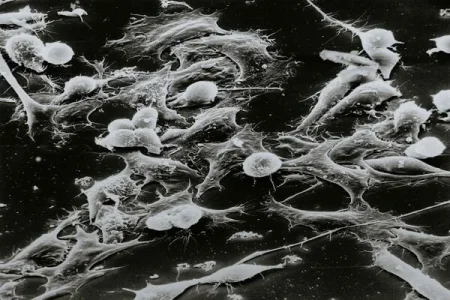
Image Credit: National Cancer Institute
City of Hope scientists developed AOH1996, a revolutionary drug targeting tumors without harming healthy cells. This breakthrough, focusing on PCNA, has shown success against 70 cancer types and is in Phase 1 trials. It offers new hope for personalized, effective cancer treatments.
City of Hope Hospital researchers in Los Angeles have achieved a breakthrough in cancer treatment by developing a new drug, AOH1996, which targets cancerous tumors while leaving healthy cells unharmed. This drug focuses on a protein called PCNA, essential for tumor growth, which had long been considered untreatable by conventional methods. After more than two decades of research, AOH1996 has shown promise in early tests, effectively attacking cancer cells in 70 different types of cancers, including breast, prostate, brain, ovarian, and lung cancers.
Named in memory of a young girl who died from cancer, Anna Olivia Healy, the drug has now entered Phase 1 clinical trials, where its safety and effectiveness are being evaluated in human patients. According to Dr. Linda Malkas, the lead researcher, the drug works by targeting a specific version of the PCNA protein that is altered in cancer cells, which helps halt the growth of tumors. This innovation could significantly advance treatment options, providing more personalized and less harmful solutions for patients.
Researchers are optimistic that AOH1996, either on its own or combined with other therapies, may revolutionize cancer treatment by avoiding the toxicity typically associated with current options. Co-author Dr. Long Gu emphasized that this achievement demonstrates the possibility of targeting previously "undruggable" proteins, and further research could lead to even more advanced treatments. The drug's potential to selectively attack cancer cells offers hope for a future of safer, more effective cancer therapies.




